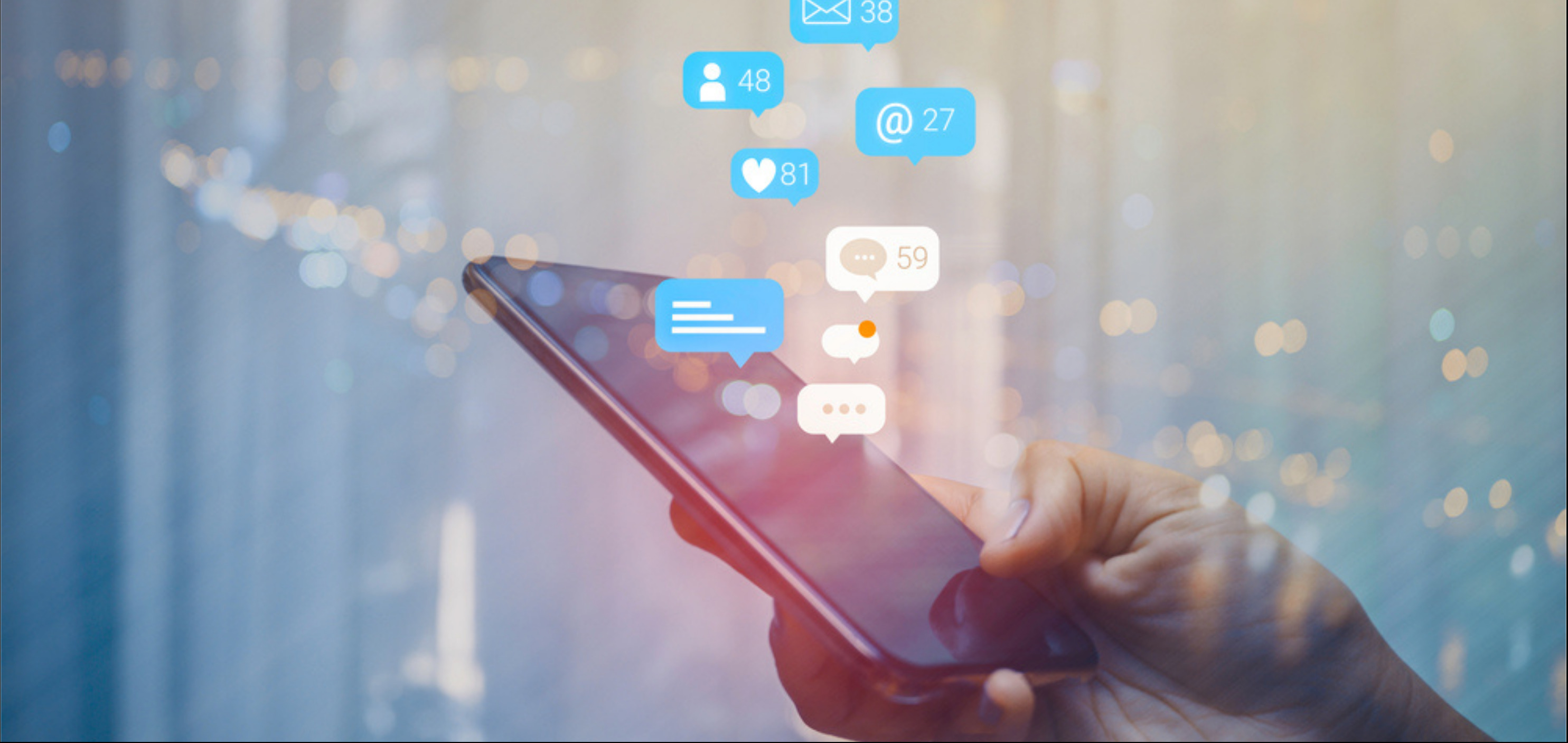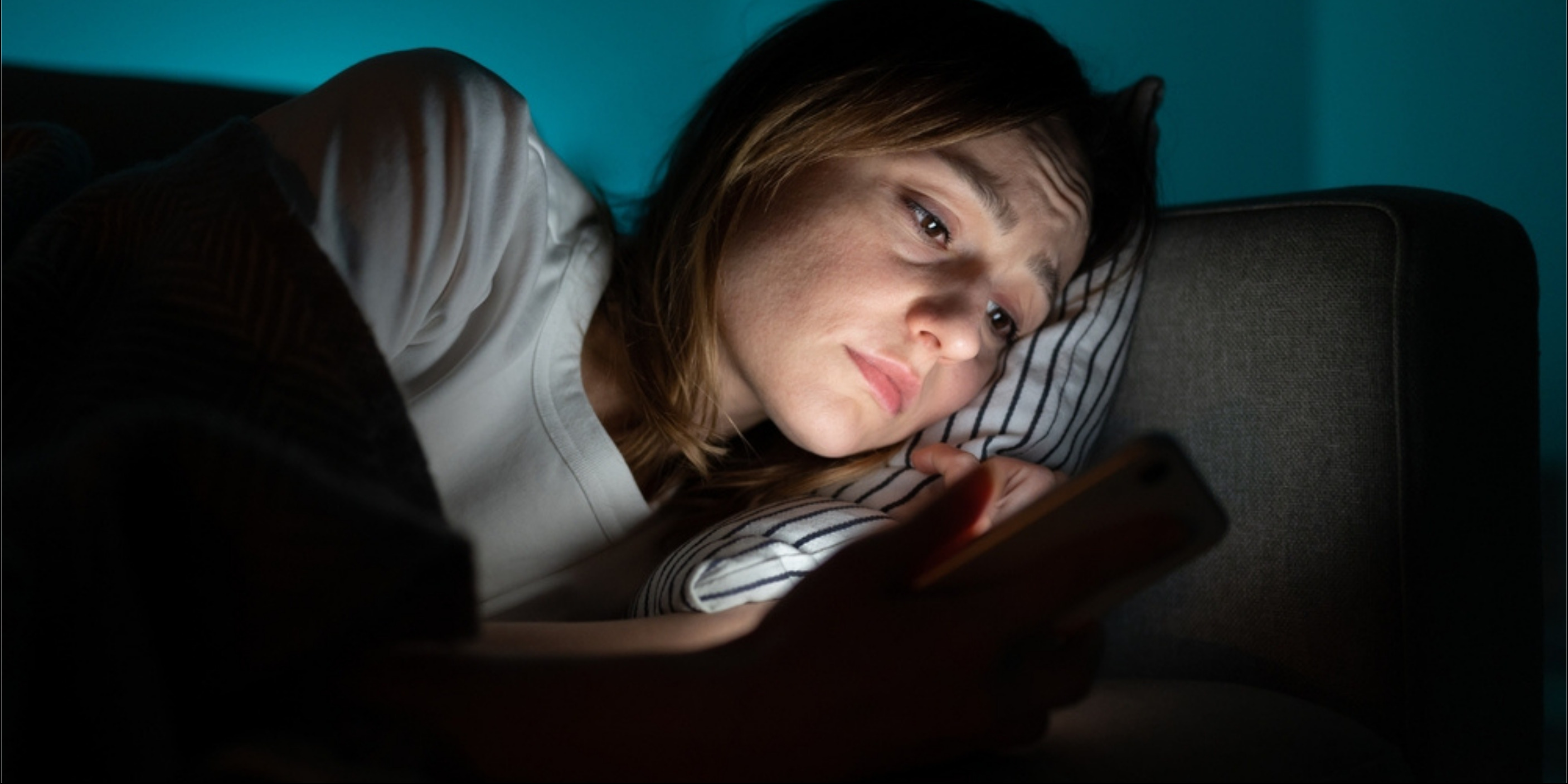Last Updated:
July 21st, 2025
Social Media Addiction | Signs, Effects and Causes
In today’s digital age, social media is more than just a way to stay in touch; it is a central part of our daily lives. The average person dedicates over two hours a day to their feeds, and while social media can have a lot of benefits, it can also be highly addictive. Social media addiction affects over two hundred million people across the globe, many of whom slipped into addiction without even realising it. That is why understanding social media addiction signs and symptoms and the reasons people get hooked are so important.

What is social media addiction?
While it is a complex condition, the simplest social media addiction definition is when you feel powerless to disconnect from social media despite negative repercussions. Social media addiction is an increasingly common behavioural addiction, but it is only recently that it has been recognised as a genuine condition. This means that more research is needed to understand the origins and impacts of social media addiction fully.
What is clear is that social media addiction shares disturbing similarities with substance abuse disorders. It can impact your health and personal life enormously and can be very difficult to overcome without professional social media addiction help.
Estimating the exact number of social media addiction cases in the UK is challenging, but with 56.2 million users across the country, the potential scale is vast. Particularly alarming is that nearly half of teenage users suspect they are already addicted. This startling statistic shows the need for more research and accessible support services for those struggling.
What causes social media addiction?
Social media addiction is not just a matter of spending too many hours logged in. It stems from deep-seated personal issues, the architecture of social media platforms and the psychological effects they have on us. Some of the biggest causes include:
Spotting the signs of social media addiction
In today’s digital-heavy world, everyone is perpetually on their phones or tablets. This can make it hard to spot when social media use becomes problematic. If you are concerned that social media might be taking over your life, here are some telltale social media addiction symptoms to spot:
- Losing hours on social media when you intended to log in for just a few minutes.
- Feeling uneasy or agitated when you are cut off from social media.
- Obsessing over the number of likes and comments your posts receive.
- Taking it to heart when your posts don’t get as much positive engagement as you expected.
- Compulsively checking your phone for new content or updates.
- Using social media as a way to lift your spirits on a bad day.
- Facing friction with loved ones over how much time you spend online.
- Allowing social media to distract you from work, studies or real-life relationships.
- Dismissing concerns from others about your social media habits.

Our compassionate team are ready and available to take your call, and guide you towards lasting the lasting addiction recovery you deserve.
If these signs of social media addiction are all too familiar, you should consider seeking professional help.
The potential dangers of social media addiction
Social media addiction can subtly cause significant damage in every part of your life. The dangers can be a little different for everyone, but some of the biggest worries include:
How to stop a social media addiction
Addressing social media addiction usually begins with a digital detox, a strategic pause from social media to decrease your dependence. This transition can be tough and may even lead to withdrawal symptoms that mirror those from quitting addictive substances.
Professional guidance from a behavioural addiction rehab programme can be crucial in effectively managing these symptoms and laying the groundwork for successful recovery. The NHS is gradually recognising and responding to social media addiction, but services are not yet widely available due to the novelty of the condition. However, numerous private rehab facilities across the UK provide expert social media addiction treatment and have helped many people rebuild their lives.
How to help someone with a social media addiction
If you are ready to make a change but you’re not sure how to start, Addiction Helper has your back. We can help you kickstart your social media addiction recovery immediately. Get in touch with Addiction Helper today and let our expert team support you from start to finish.
Our compassionate team are ready and available to take your call, and guide you towards lasting the lasting addiction recovery you deserve.
Frequently Asked Questions
(Click here to see works cited)
- UK Rehab. “Social-Media Addiction | Causes, Symptoms and Diagnosis.” UK Rehab, https://www.uk-rehab.com/behavioural-addiction/social-media/. Accessed 17 February 2025.
- Dixon, Stacy Jo. “Social media penetration UK 2024.” Statista, 25 March 2024, https://www.statista.com/statistics/507405/uk-active-social-media-and-mobile-social-media-users/. Accessed 17 February 2025.
- UK Rehab. “Behavioural Addiction | Causes, Symptoms and Diagnosis.” UK Rehab, https://www.uk-rehab.com/behavioural-addiction/. Accessed 17 February 2025.
- Firth, Joseph et al. “The “online brain”: how the Internet may be changing our cognition.” World psychiatry : official journal of the World Psychiatric Association (WPA) vol. 18,2 (2019): 119-129. doi:10.1002/wps.20617. Accessed 17 February 2025.
- He, Qinghua et al. “Brain anatomy alterations associated with Social Networking Site (SNS) addiction.” Scientific reports vol. 7 45064. 23 Mar. 2017, doi:10.1038/srep45064. Accessed 17 February 2025.
- Royal Society for Public Health. “#StatusOfMind: Social media and young people’s mental health and wellbeing.” Royal Society for Public Health, https://www.rsph.org.uk/static/uploaded/d125b27c-0b62-41c5-a2c0155a8887cd01.pdf. Accessed 17 February 2025.

